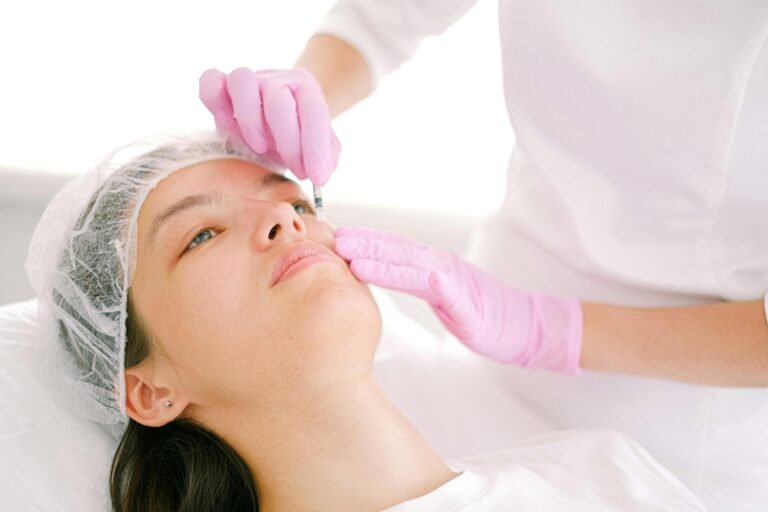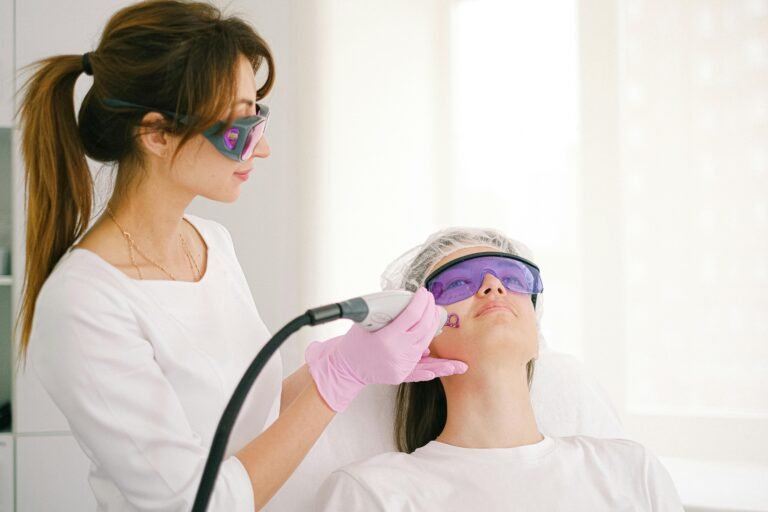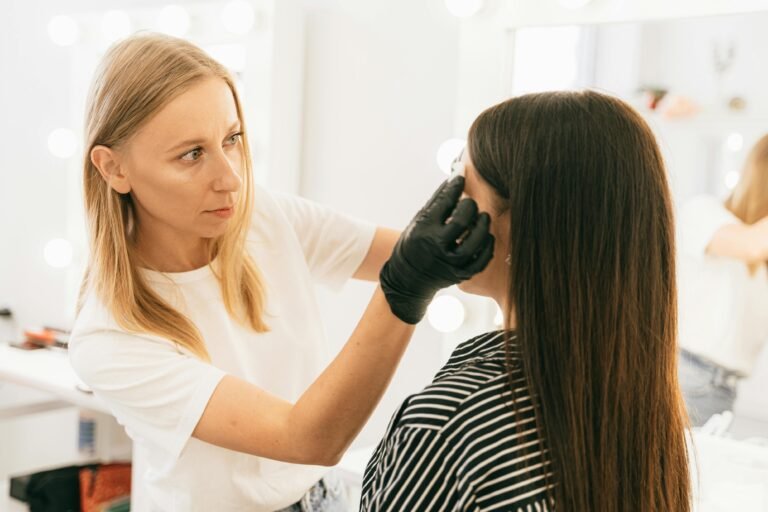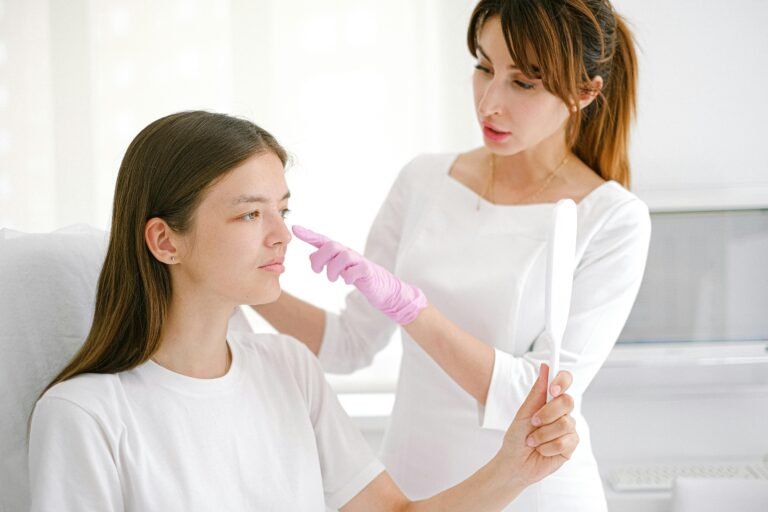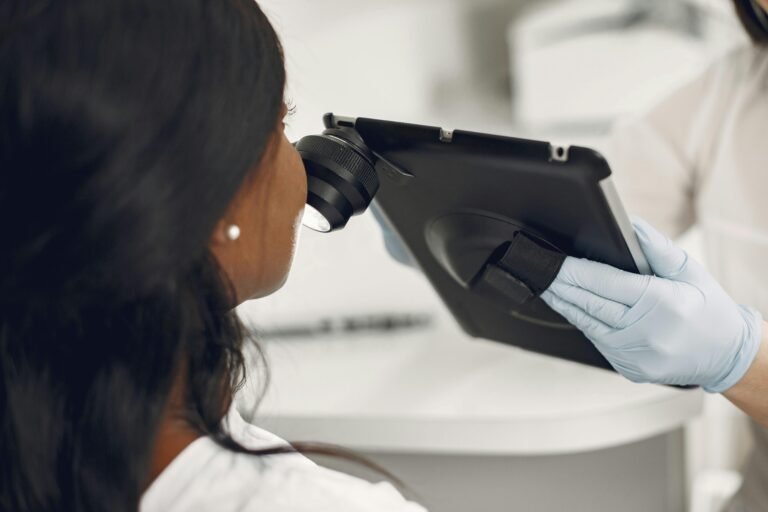Best Dermatologist for Hair Loss in Gurgaon
Looking for the best dermatologist for hair loss in Gurgaon? Discover essential tips to ensure you choose the right specialist for your needs.
When it comes to addressing hair loss, selecting the right dermatologist in Gurgaon can significantly impact the outcome of treatment. Key factors to consider include the practitioner’s credentials, experience with various hair loss conditions, and their approach to personalized care. Effective dermatologists not only implement advanced diagnostic techniques but also provide a comprehensive treatment plan tailored to individual needs. As you evaluate potential specialists, understanding the nuances of their methodologies and patient support systems will be critical—especially when it comes to maintaining long-term results. What should you prioritize in your search?

Causes of Hair Loss
Hair loss can affect individuals for a variety of reasons, making it a complex issue that often requires a comprehensive understanding of its underlying causes.
One significant factor contributing to hair loss in women is hormonal fluctuations. Conditions such as pregnancy, childbirth, and menopause can significantly alter hormone levels, leading to temporary or permanent hair thinning. Additionally, medical conditions like thyroid disorders and polycystic ovary syndrome (PCOS) can exacerbate these hormonal imbalances, resulting in further hair loss.
Nutritional deficiencies are another critical aspect, as inadequate intake of essential vitamins and minerals, including iron and vitamin D, can disrupt hair growth. Diets that are excessively restrictive can lead to significant hair loss, highlighting the importance of balanced nutrition. Approximately 90% of hair is in the anagen phase at any given time, indicating the importance of maintaining healthy hair growth cycles.
Psychological stress also plays a pivotal role; high levels of cortisol from chronic stress can disrupt the hair growth cycle, leading to conditions like telogen effluvium. This condition is characterized by increased hair loss where individuals may shed up to 300 strands daily.
Furthermore, severe infections and physical trauma can trigger rapid hair loss, making it essential to consider both physical and emotional health in understanding this multifaceted issue.
Recognizing these causes is crucial for effective evaluation and management of hair loss.
Treatment Options Available
When addressing hair loss, various treatment options are available, including FDA-approved medications and non-invasive therapies. These treatments range from topical solutions like minoxidil to advanced procedures such as platelet-rich plasma therapy. Understanding the effectiveness and suitability of each option is crucial for individuals seeking to restore their hair and confidence. Consulting with a dermatologist can provide insights into the underlying causes of hair loss and help tailor the best treatment plan for you. Additionally, many individuals experience hair loss due to genetic predisposition, making it essential to consider this factor when choosing a treatment approach.
FDA-Approved Medications
Exploring effective treatment options for hair loss often leads individuals to consider FDA-approved medications, which play a crucial role in managing various forms of alopecia.
These medications are designed to address specific causes of hair loss and can provide significant benefits.
- Finasteride: Particularly beneficial for men with androgenic alopecia, finasteride acts as a DHT blocker, reducing hair loss and promoting regrowth after about three to four months of use.
However, it is not approved for use in women.
- Spironolactone: This medication shows notable effectiveness for women experiencing female pattern hair loss.
It can halt further hair loss and enhance hair thickness, working effectively in approximately 40% of cases.
Caution is advised due to potential birth defects.
- **Baricitinib and *Ritlecitinib***: These JAK inhibitors are FDA-approved for severe alopecia areata and work by modulating inflammatory signals that contribute to hair loss. Litfulo blocks inflammatory signals, resulting in a more favorable environment for hair regrowth. Additionally, regular dermatologist visits are essential for monitoring treatment progress and adherence.
When considering treatment, consulting with a qualified dermatologist can help determine the most suitable options based on individual needs and conditions.
Non-Invasive Therapies
Numerous non-invasive therapies are available for individuals experiencing hair loss, offering a range of options that cater to various needs and preferences. Among the most popular hair growth technologies are Low-Level Laser Therapy (LLLT) and light-based treatments. These methods, including laser combs and LED light therapy, enhance scalp health by stimulating blood circulation and delivering essential nutrients to hair follicles. Additionally, these treatments are safe and approved by medical regulatory bodies, ensuring peace of mind for patients.
Another effective non-invasive approach is Platelet-Rich Plasma (PRP) therapy, which utilizes the patient’s own blood to promote hair regeneration. Understanding the common causes of hair loss can also help individuals choose the most effective treatment options. Complementary treatments such as fibroblast-rich serum therapy and mesotherapy further enhance nutrient delivery to the scalp, fostering healthier hair growth.
Natural remedies and supplements can also play a vital role in supporting hair health. Biotin, iron, and herbal supplements are commonly recommended for their ability to combat nutritional deficiencies linked to hair loss. Additionally, essential oils like rosemary and peppermint can improve scalp circulation, promoting hair vitality.
For those seeking cosmetic solutions, scalp micropigmentation and hair fibers offer immediate visual enhancement.
Top Clinics in Gurgaon
Gurgaon is home to several top-tier clinics specializing in hair loss treatments, offering a variety of advanced solutions tailored to individual needs. When considering clinic comparisons, it is essential to analyze the unique offerings and expertise available in the region. Here are three notable clinics:
- Skinzest Clinic: Known for its advanced treatment options, including PRP therapy, laser treatments, and hair transplants, provided by seasoned dermatologists.
- Skinfinity Clinic: With over 20 years of experience, Dr. Vivek Nair leads this clinic, offering innovative treatments such as Mesotherapy and Fibroblast-rich serum therapy. Genetic factors play a significant role in the prevalence of hair loss, making it crucial for clinics to consider family history during assessments.
- Traya Health: This clinic takes a holistic approach, combining Ayurveda, dermatology, and nutrition to address hair loss effectively. Many of these clinics focus on nutritional support to enhance overall hair health, recognizing its importance in the treatment process.
These clinics not only emphasize treatment innovations but also ensure patient-centric care. They prioritize understanding individual needs, offering personalized treatment plans and continuous support.
Choosing the Right Dermatologist
Choosing the right dermatologist for hair loss is crucial for effective treatment and recovery.
It is essential to assess their qualifications, expertise, and experience in managing hair disorders, as well as their commitment to providing personalized care.
A knowledgeable and empathetic dermatologist can significantly improve your treatment journey by tailoring solutions to your specific needs.
Assessing Dermatologist Expertise
When seeking the right dermatologist for hair loss treatment, it is essential to evaluate their expertise comprehensively. This involves assessing their qualifications, clinical experience, and diagnostic capabilities to ensure effective care.
Here are three critical factors to consider:
- Dermatologist Qualifications: Verify their education, including medical school and residency training, as well as any specialized training related to hair loss treatments. Continuous education indicates a commitment to staying updated with advancements in hair loss research.
- Clinical Experience: Inquire about their experience in diagnosing and treating various hair loss conditions. A dermatologist with significant clinical experience will be well-versed in both conventional and advanced treatment options, ensuring a tailored approach to individual needs.
- Diagnostic Skills: Evaluate their ability to accurately diagnose the underlying causes of hair loss. This includes the use of comprehensive examinations, blood tests, and scalp biopsies to differentiate between types of hair loss, ensuring a targeted treatment strategy.
Importance of Personalized Care
Recognizing the unique nature of each individual’s hair loss journey is fundamental in seeking effective treatment, underscoring the importance of personalized care.
Personalized assessments are critical, as they enable dermatologists to conduct comprehensive evaluations, including detailed clinical examinations and advanced diagnostic tools like scalp biopsies. This process ensures that underlying causes of hair loss are accurately identified, paving the way for tailored strategies that meet the specific needs of each patient.
Dermatologists offer a variety of treatment options, ranging from topical and oral medications to innovative therapies such as PRP injections, each customized based on the patient’s diagnosis.
The role of psychological support is also vital, addressing the emotional impact of hair loss alongside medical interventions. Continuous monitoring and regular follow-ups ensure that treatment plans remain effective over time, allowing for necessary adjustments.
Additionally, discussions about lifestyle modifications—including nutrition and stress management—are integral to maintaining healthy hair growth.
Ultimately, a patient-centered approach, characterized by empathy and expertise, is essential in developing effective, individualized treatment plans that foster not only hair restoration but also overall well-being.
Tips for Hair Loss Prevention
Effective strategies for hair loss prevention are essential for maintaining healthy hair and minimizing the risk of thinning or shedding. By adopting a holistic approach that focuses on diet, gentle care, and protective measures, individuals can significantly enhance their hair health.
Here are three key tips for hair loss prevention:
- Nutrition and Hydration: Incorporate protein sources, such as lean meats, fish, and legumes, to support hair follicle strength.
Additionally, maintain hair hydration by drinking plenty of water and including foods rich in vitamins A and D, as well as biotin.
- Gentle Hair Care: Utilize gentle shampoos and minimize heat styling to prevent damage.
Allow hair to air dry and brush it gently with a wide-tooth comb to reduce breakage.
- Protective Practices: Shield your hair from UV exposure with protective serums or hats.
Avoid tight hairstyles that strain the hair follicles, and limit chemical treatments to maintain overall hair health.
Implementing these strategies can help create a supportive environment for hair growth, reducing the risk of hair loss and promoting a fuller, healthier mane.
Understanding the Consultation Process
For individuals experiencing hair loss, seeking the expertise of a qualified dermatologist is a vital step in addressing the issue comprehensively. The consultation process begins with an initial assessment, where the dermatologist gathers a comprehensive medical history. This includes inquiries about family history, medications, hair care practices, and any previous treatments. A consultation checklist may be provided to ensure all pertinent information is covered.
Following this, diagnostic procedures such as dermoscopy and trichoscopy are employed for detailed examinations of the scalp and hair follicles. Photography is often utilized to document the extent of hair loss, aiding in tracking treatment progress. A physical examination further assesses the condition of the scalp and hair, including a hair pull test to evaluate strength.
Once all information is collected, the dermatologist will develop a personalized treatment plan. This plan identifies the root cause of hair loss and discusses various treatment options, which may include topical, oral, and procedural methods.
Importantly, education on managing hair loss and preventing further loss is also provided, ensuring patients feel informed and empowered throughout their journey.
Importance of Follow-Up Care
The significance of follow-up care in managing hair loss cannot be overstated, as it plays a crucial role in ensuring the success of treatment plans. Regular assessments allow dermatologists to evaluate the effectiveness of interventions and make necessary adjustments, fostering patient engagement and treatment adherence.
Key aspects of follow-up care include:
- Regular Monitoring: Frequent visits enable dermatologists to track hair growth through photographs and hair counts, ensuring timely adjustments to treatment plans.
- Side Effect Management: Continuous monitoring allows for the early detection and management of potential side effects, enhancing patient comfort and satisfaction.
- Personalized Care: Follow-up appointments facilitate open communication, enabling dermatologists to address patient concerns and tailor treatment based on individual needs.
Incorporating these elements into a comprehensive follow-up strategy improves treatment outcomes and promotes long-term success in hair restoration.
Frequently Asked Questions
What Are the Common Side Effects of Hair Loss Treatments?
Common side effects of hair loss treatments include scalp irritation from minoxidil application, hypertrichosis, and potential hair transplant risks such as infection or scarring. Understanding these effects is essential for informed treatment decisions.
How Long Does It Take to See Results From Treatments?
Treatment timelines for hair loss vary significantly, typically showing initial improvements within 3-6 months. Individual factors, including genetic predisposition and overall health, greatly influence the rate and extent of these results, necessitating personalized approaches.
Are There Age Limitations for Hair Loss Treatments?
Age-related factors significantly influence treatment eligibility for hair loss. Generally, individuals under 21 are advised against surgical options due to unpredictable hair loss patterns, while non-surgical alternatives may be more suitable for younger patients.
Can Hair Loss Be Reversed Completely?
Complete reversal of hair loss is often challenging due to genetic factors. However, various hair restoration techniques, including medications and advanced treatments, can significantly improve hair density and promote regrowth, particularly when initiated early.
What if I Have Multiple Causes of Hair Loss?
When multiple causes of hair loss are present, a thorough assessment is essential for diagnosing hair loss. Treatment customization, involving medications, supplements, and lifestyle changes, can effectively address diverse underlying factors and promote hair regrowth.

